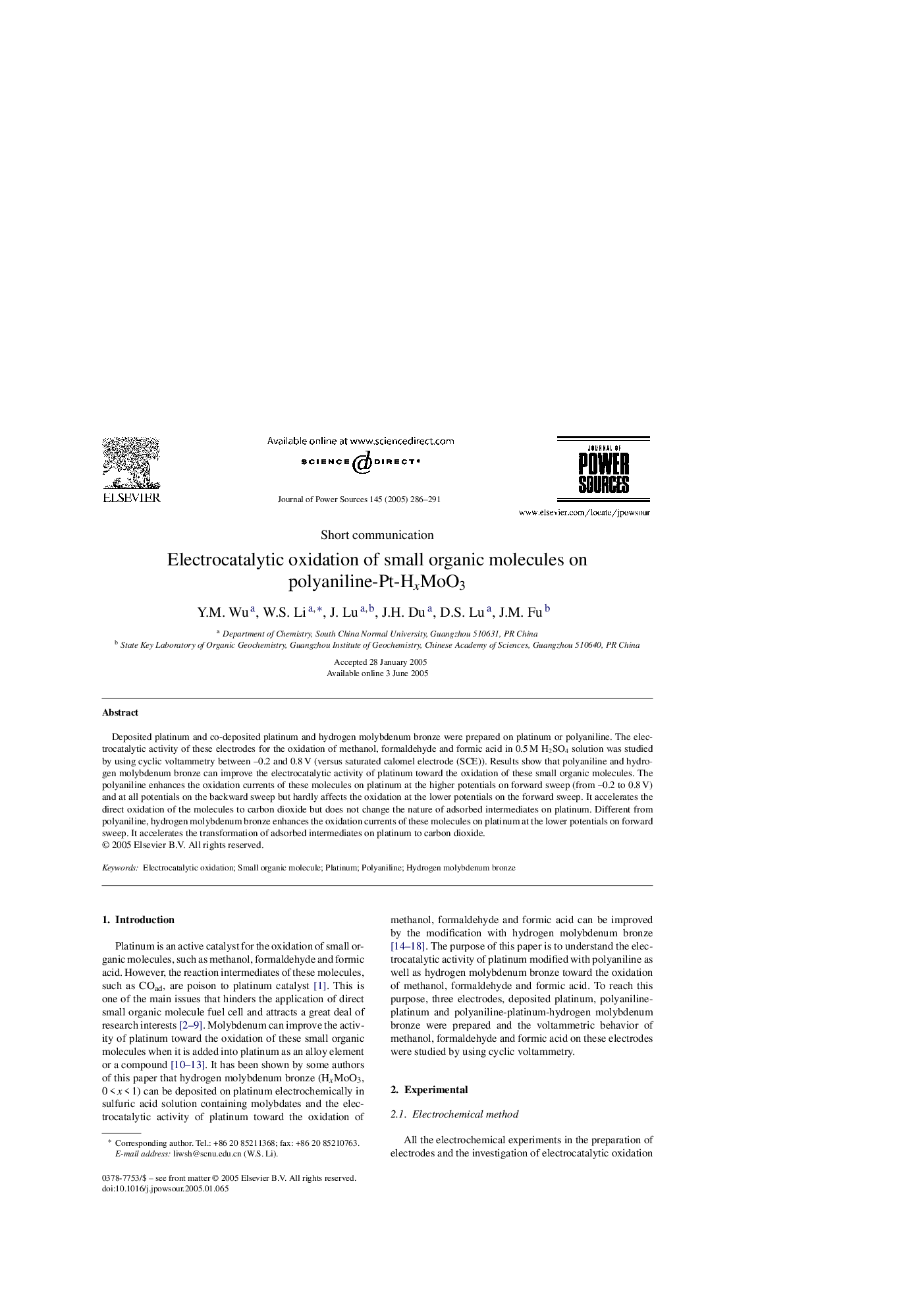| Article ID | Journal | Published Year | Pages | File Type |
|---|---|---|---|---|
| 10568173 | Journal of Power Sources | 2005 | 6 Pages |
Abstract
Deposited platinum and co-deposited platinum and hydrogen molybdenum bronze were prepared on platinum or polyaniline. The electrocatalytic activity of these electrodes for the oxidation of methanol, formaldehyde and formic acid in 0.5Â M H2SO4 solution was studied by using cyclic voltammetry between -0.2 and 0.8Â V (versus saturated calomel electrode (SCE)). Results show that polyaniline and hydrogen molybdenum bronze can improve the electrocatalytic activity of platinum toward the oxidation of these small organic molecules. The polyaniline enhances the oxidation currents of these molecules on platinum at the higher potentials on forward sweep (from -0.2 to 0.8Â V) and at all potentials on the backward sweep but hardly affects the oxidation at the lower potentials on the forward sweep. It accelerates the direct oxidation of the molecules to carbon dioxide but does not change the nature of adsorbed intermediates on platinum. Different from polyaniline, hydrogen molybdenum bronze enhances the oxidation currents of these molecules on platinum at the lower potentials on forward sweep. It accelerates the transformation of adsorbed intermediates on platinum to carbon dioxide.
Keywords
Related Topics
Physical Sciences and Engineering
Chemistry
Electrochemistry
Authors
Y.M. Wu, W.S. Li, J. Lu, J.H. Du, D.S. Lu, J.M. Fu,
